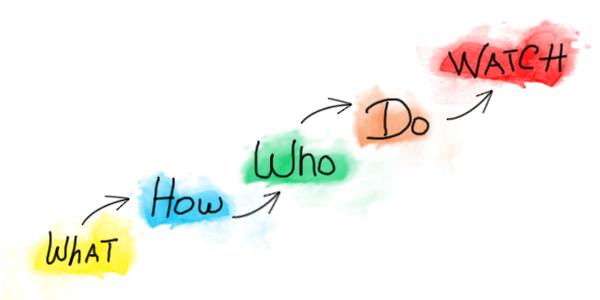The Five Myths of Management

by Gabriel Lawson
The following five myths greatly reduce the effectiveness of managers and their employees. Apply each myth’s lesson and you will increase your organization’s success and effectiveness.
The Myth of Working Hard
The ‘Fatigue Factor’ shows that working 60-hour weeks for 2 months yields the same productivity as working 40-hour weeks for 2 months. Even worse, working 60-hour weeks for 3 months yields an average productivity of only 19.5 hours. Can an organization really afford this type of productivity? Henry Ford showed 5-day work-weeks yielded the same productivity as 6 days; equal production for less expense.
Lesson: Know WHAT your objective is before you act.
If you knew what working 60-hour work-weeks does to productivity, would you still use that as a primary strategy for a project? Not likely, you would look for and find a smarter solution. The myth of working hard tells us we reward the wrong behavior—working hard rather than working smart. This is important because it points out that understanding what we are doing is the first step to starting in the right direction. Not fully understanding what is to be accomplished increases the odds of going in the wrong direction. First, clearly understand what needs to be accomplished and what constitutes success before starting a project.
The Myth of Being Smart
Studies show that the highest IQ people outperform people of average intelligence only 20% of the time, while those of average intelligence outperform people of the highest intelligence 70% of the time. If IQ isn’t the critical factor in your highest performing employees, what is?
Emotional Intelligence (EQ) is a much better indicator and unlike IQ, EQ can be taught, developed and matured—and by quite a lot!
Research shows success comes more often from emotionally intelligent people. Yet companies continue to strategically hire ‘the best & brightest’ rather than the emotionally intelligent worker; who really are your best!
Lesson: Determine HOW to accomplish your what.
The myth of being smart shows how important developing the right strategy is to achieving your objective. This is important because the only thing worse than not knowing the right direction is taking the longest path to get there. In our fast-paced society we often start doing before determining a smart “how” to accomplish our what. Determine what, then how.
Myth: Nice Guys Finish Last
Positive emotions stimulate the brain’s cognitive regions—resulting in better problem solving, decision making, creativity, and intuition.
Negative emotions stimulate the reptilian brain: the ‘fight or flight’ part of the brain. On average, our reptilian brain consumes 65% to 70% of our brain’s energy; decreasing our creative and cognitive abilities.
However, positive emotions quickly redirect the brain’s energy to our cognitive brain; making us better workers. So play nice—it makes the right difference.
Lesson: Determine WHO and get them on board.
Playing nice is important because: (a) it fosters teamwork; (b) research shows it puts people in their cognitive brain where they are more productive; and (c) it increases a person’s empathy— the ability to put yourself in the other person’s shoes. This is important because empathy is the critical element in creating win-win scenarios. Everybody wins, and everybody buys in. Determine what, then how, then who.
The Myth of Talent
Our natural-born talent isn’t so natural. Research shows almost all talent comes from doing; from doing, and doing—about 10,000 hours of doing to become great at something. In contrast to popular belief, natural talent is acquired through dedication, passion, and practice.
Lesson: DO what maps to your HOW.
As creatures of habit we tend to do that at which we are good. But what if it isn’t what we should be doing? What if what we are doing doesn’t map to our strategy, our how? The myth of talent let’s us know that we can do almost anything with a little practice. Once we know the what, the how, and the who, it is key we only do activities that map to our how. Do what needs to be done, not just what you always do.
The Myth of Practice
Practice makes perfect. Wrong! Practice makes permanent. Practicing a bad golf swing only gets you a bad golf swing.
Lesson: WATCH to see if you are getting the right results.
Research shows that the great, practice what they aren’t good at, while the good, practice what they do well. The myth of practice tells us that to be great; we need to be aware of what we are doing wrong. That’s why the great have coaches and mentors who watch and point out what is not right. Of all the lessons, watching brings the greatest benefits because it constantly corrects our path. Determine what, then how, then who, then do; but above all watch to see if what you are doing is getting the right results.


